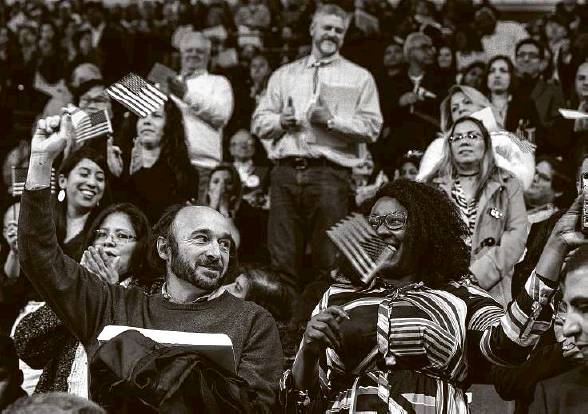Trump closing doors to legal immigration
By Charles C. Foster
President Donald Trump tweeted last week, “In light of the attack from the Invisible Enemy as well as the need to protect the jobs of our GREAT American Citizens, I will be signing an Executive Order to temporarily suspend immigration into the United States!”
Trump’s executive order banned all immigration from abroad with few limited exceptions, potentially representing the greatest restrictions on legal immigration since the United States in the Immigration Act of 1924 imposed the first permanent annual quotas, which were heavily weighted in favor of Northern Europeans and banned all immigration from Asia.
The new executive order is more of a political statement than a health or economic policy one. If short term, it may not have any major effect with American consular posts abroad temporarily closed for immigrant interviews due to the coronavirus pandemic. The statement that the executive order is effective only for 60 days provides one with little confidence given the fact Trump said that his original so called “Muslim Ban” — later recharacterized as a travel ban — would be effective for 90 days and now it’s been in effect for over three years. Furthermore, the president in his press conference indicated that he couldn’t tell when the executive order would be lifted. Stephen Miller, his White House adviser and long-term immigration restrictionist, reportedly said on a phone call that they had achieved their goal of significantly restricting legal immigration on a long-term basis..
The rationale that would-be immigrants are asource of the coronavirus makes little sense. Prior to the issuance of any immigrant visa abroad, the applicant is required to be tested for any contagious disease by a doctor selected by the appropriate American consulate abroad. Furthermore immigrants far from being a burden on the economy have consistently led with the creation of small businesses and technological innovation, being a net plus for the economy.
While the executive order will likely be challenged in one or more U.S. district courts, which may find that the president exceeded his executive authority, the U.S. Supreme Court’s decision in Trump v. Hawaii upholding the validity of the travel ban gives one little comfort that such litigation will be successful. Chief Justice John Roberts, writing for his 5-4 majority, held that the president had the authority to “suspend the entry of all aliens” into the United States whenever he “finds” that their entry “would be detrimental to the interests of the United States.”
The executive order denies entry of most applicants who have qualified for immigrant visas to obtain Lawful Permanent Residency — so-called “green card” status. The order does not apply so far to non-immigrant visitors, students and temporary workers — but the executive order refers to additional measures being taken within 30 days to restrict the entry of non-immigrant workers. This likely will restrict the very limited H-1B worker program, the primary way that graduates of U.S. universities are able to remain and work in the country after graduation, with over 40 percent having advanced degrees.
The executive order only exempts health care professionals from the ban on employment-based immigration. Furthermore, it also exempts spouses and children of U.S. citizens from the family-based immigration ban, but applies to parents, adult children and siblings of U.S. citizens and spouses and children of lawful permanent residents. Of great concern, the executive order language tracks legislation supported by the president and originally proposed by Sens. Tom Cotton and David Perdue in their RAISE Act, which would have significantly cut legal family-based immigration, thus achieving through executive action what the Trump administration failed to achieve legislatively.
Since he will not be able to run for reelection on a great economy and stock market, the president’s go-to card has been to blame problems on immigrants and immigration as he did in the 2016 campaign. Better to shift the conversation and debate to immigration rather than the economy or the handling of the coronavirus. However, whatever you think about the president, his political instincts at this time may not be wrong with recent polling showing support for a “pause” on immigration.
But it will be a true tragedy if immigration retrictionists are able to achieve their long-stated goal of an unprecedented shutdown of our legal immigration system while America is distracted by the coronavirus crisis. If there is anything that will save us, it will be that most Americans still recognize that we are — to quote the title of President John F. Kennedy’s seminal work — “A Nation of Immigrants.” About a quarter of all Houstonians are foreign born. Millions of immigrants are already in the United States working day-in and day-out to defeat the coronavirus, mitigating the economic effects by cleaning away germs, delivering needed medical and other supplies and developing cures. Even conservative Republican Sen. Chuck Grassley said on C-Span that he doesn’t know if Trump’s legal immigration ban makes any sense because “we’ve been a welcoming nation and we need people.”
Let’s hope common sense will prevail.
Foster is the chairman of Foster LLP, past national president of the American Immigration Lawyers Association and immigration policy adviser to Presidents George W. Bush and Barack Obama.
